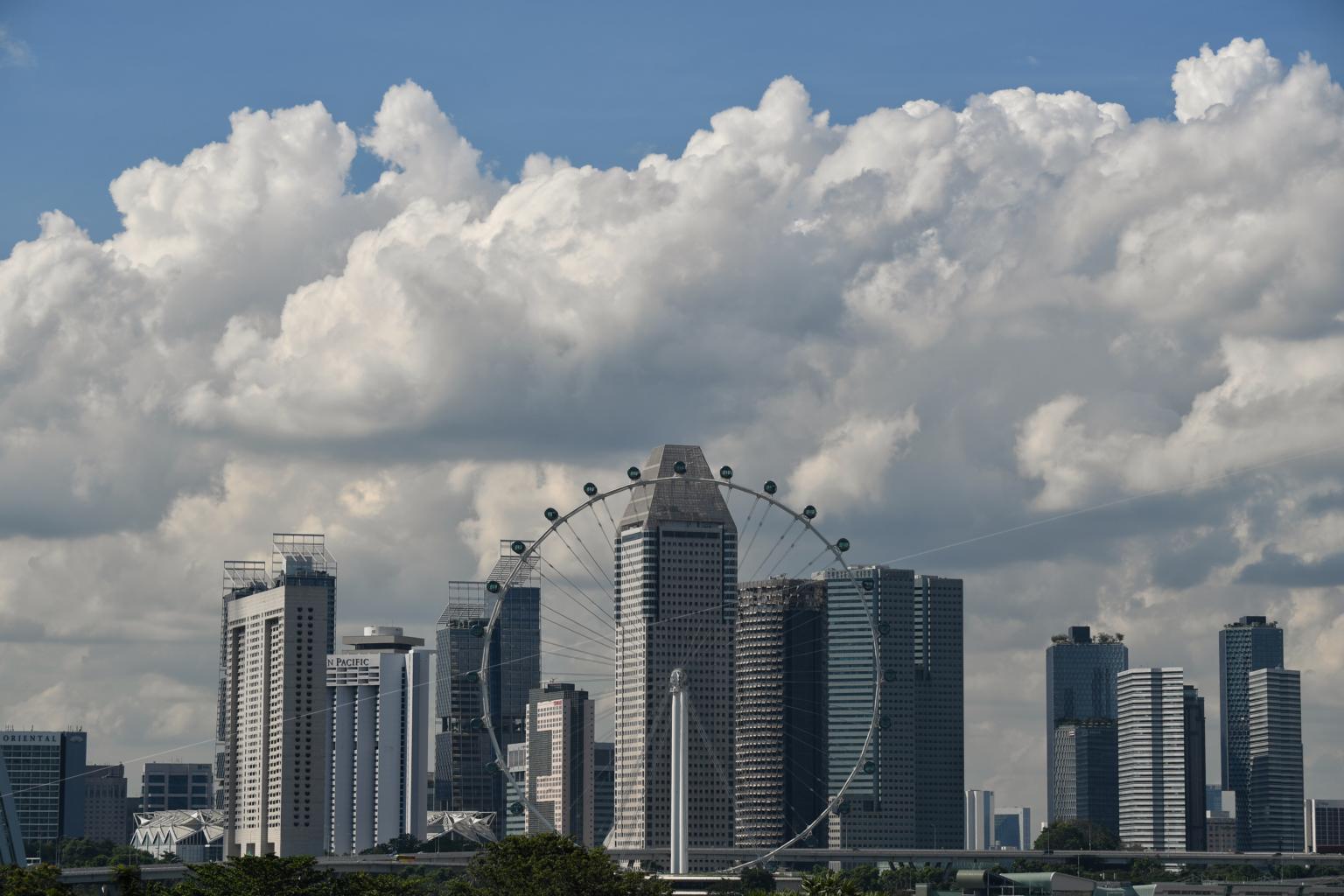Singaporeans expect inflation to rise to 2.2% this year with Covid-19 recovery prospects
Sign up now: Get ST's newsletters delivered to your inbox

With the economic fallout from the pandemic, headline inflation trended negative for most of last year.
ST PHOTO: KUA CHEE SIONG
Ong Sing Yee
Follow topic:
SINGAPORE (THE BUSINESS TIMES) - Singaporean households polled last month see overall or headline inflation rising to 2.2 per cent this year from the 1.9 per cent in a September poll, according to a quarterly survey released by DBS Bank and the Singapore Management University (SMU) on Thursday (Jan 21).
December's figure is slightly higher than September's 1.9 per cent, which has been the lowest point polled since the inception of the Singapore Index of Inflation Expectations (SInDEx) survey in 2011. It is also lower than the fourth-quarter average of 3.2 per cent from 2012 till 2019.
With the economic fallout from the pandemic, headline inflation trended negative for most of last year. The decline eased to minus 0.1 per cent in November, from minus 0.2 per cent the previous month. The Government expects headline inflation to range between minus 0.5 per cent and 0.5 per cent this year.
In a joint statement, DBS and SMU said some semblance of normalisation and global cues of recovery with the advent of vaccines might have buoyed inflation expectations.
Assistant professor of finance Aurobindo Ghosh of SMU's Lee Kong Chian School of Business, who is head of the SInDEx survey, said the availability of vaccines has led to a belief that the end of the pandemic could be drawing near.
He added that the signing of the Brexit deal, a change in the regime in the United States and the Regional Comprehensive Economic Partnership treaty have resulted in renewed prospects of global recovery.
After adjusting for behavioural biases, inflation expectations edged up to 3.2 per cent in December from 2.8 per cent in September.
"The trend in inflation expectations adjusted for behavioural biases seems to be in line with the general increase in inflation expectations, although inflation expectations for some components like healthcare, clothing and footwear, recreation and culture, and communications have increased by a larger extent," DBS and SMU said.
They added that the survey did not find any component where the inflation expectations were significantly influenced due to Covid-19, unlike September's survey.
Consumption patterns have also seemed to pick up, appearing to have reverted to pre-Covid-19 norms with the increase in consumer spending and economic activities. This came after the moderate decline in spending on clothing and footwear, transportation, and recreational and cultural activities in September.
Core inflation expectations, excluding accommodation and private transport costs, increased by 0.4 percentage point to 2.5 per cent in December.
According to DBS and SMU, this "possibly reflects renewed economic activities, including a moderate increase in world commodity prices, as the world economy entered a recovery phase".
Core inflation expectations for a subgroup of the population who own their accommodation and use public transport edged up to 2.1 per cent, up from 1.9 per cent in the previous survey.
DBS and SMU said that expectations of this subgroup resembled the Singapore core inflation expectations as they were not exposed to private road transportation or accommodation expenses.
The survey found that 71 per cent of the respondents felt that Covid-19 would have a significant impact on inflation, a decrease from the 77 per cent in September. Some 72 per cent of the respondents felt that the pandemic would have a long-term impact on inflation.
Around 18 per cent of the respondents also felt that they would experience a salary reduction of more than 5 per cent in the next 12 months. Median salary increments expectations remained between minus 1 per cent and 1 per cent.
As a measure of the trade-off between prioritising economic growth compared with the cost of life, the survey found that for every person who wanted to prioritise life over livelihood there were three people who prioritised livelihood over life.
"These observations signal a higher public appetite of normalisation of economic activities that governments are paying heed to globally," said SMU's Prof Ghosh.
DBS chief economist and managing director of group research Taimur Baig said that Singapore's inflation expectations appeared to be responding to global cues, and seemed to be improving, although not particularly strong.
"With the depth of the pandemic hopefully behind and supportive policies still in place, some pick-up in food, energy, manufactured goods and services prices can be expected. Accordingly, we see a welcome revival in inflation expectations, although they are by no means high," he said.
With additional information from The Straits Times

